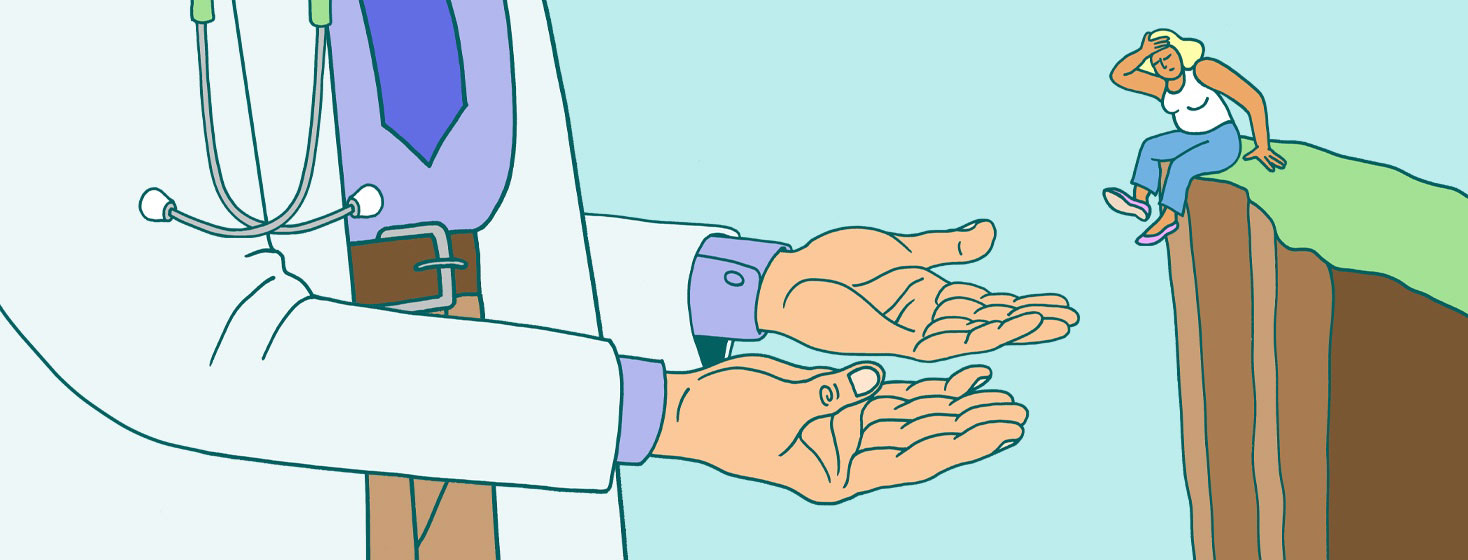Switching Doctors
In the first 2 years of being diagnosed I found a doctor who was incredible. He really set the bar high for the things to look for in a practitioner, he genuinely cared, and most importantly he was extremely knowledgeable about myasthenia gravis.
Fast forward 4 months after I had initially started seeing him and he was unfortunately put on permanent medical leave due to an accident. The hospital I was at had to scramble to relocate his 400+ patients, most with rare conditions, to other providers. After a couple of months, I was finally referred to another neurologist within their network and hospital. I quickly made an appointment with him.
New doctors and doctor’s appointments in general make me nervous, but I was eager to meet him. Having a rare disease means you quickly learn that there are doctors who know about your disease, ones who don’t (reasonably so since they are rare), and ones who will pretend like they do. The latter is terrifying based on my experience and they can unknowingly put us in very dangerous situations. This always makes me extra nervous prior to a new visit.
Meeting my new doctor
My appointment finally rolled around. I brought my husband as usual to be an advocate for me and an overall support. It started with the usual patient intake questions before we got more in depth about my current treatment. I explained that I was managed with at home IVIG which had worked for me for almost a year.
His response was that he wanted to switch me to an immunosuppressant and take me off IVIG entirely. He also wanted to increase my prednisone, despite my previous doctor insisting I needed to get off as quickly as my body would tolerate. It had caused horrendous side effects including osteoporosis, severe anemia, cataracts, partial blindness in my left eye due to high levels of cortisol, and the list goes on.
I tried to explain that I couldn’t be on immunosuppressants because they had found cervical cancer cells believed to have grown because of a weakened immune system when I was on high doses of prednisone. Despite all of that, he insisted that I follow his advice and completely alter a treatment plan that had already proven to be effective for me, was in my best interest, and was clearly the safest option for me.
The issue
It took some back and forth and almost an hour before he relented, looked me straight in the eyes, and told me, "I actually specialize in multiple sclerosis and don’t really know the benefits of IVIG in myasthenia gravis." I couldn’t believe that he had just spent a good amount of time, wasting mine, but also trying to convince me to do something that I didn’t feel comfortable with nor was in my best interest.
It wasn’t his lack of knowledge or experience with myasthenia gravis that was the issue. I’m used to that. It was the fact that he couldn’t (or wouldn’t) admit to that fact; the lack of familiarity with the disease. It was the pretending like he knew what he was talking about when he didn’t quite know.
Make sure it is the right fit
We often put our whole lives into these doctor’s hands. That’s a lot of responsibility. Especially when they won’t suffer the consequences of the decisions made. What I’ve learned is that I need to know as much as I can about the disease too. This way I’m not left with the consequences of inexperienced care.
I have also learned that it’s okay to interview your doctors or switch doctors accordingly. Since we rely so heavily on them for our health, it’s okay to ask questions and to make sure you are finding the right fit.
Most doctors are wonderful. Not only do they care, but if they don’t know the answer, they’ll often refer you to someone who does. This is just my experience. I had to get very comfortable very quickly with saying "no" and finding a doctor I could trust. After all, my quality of life counts on it!

Join the conversation